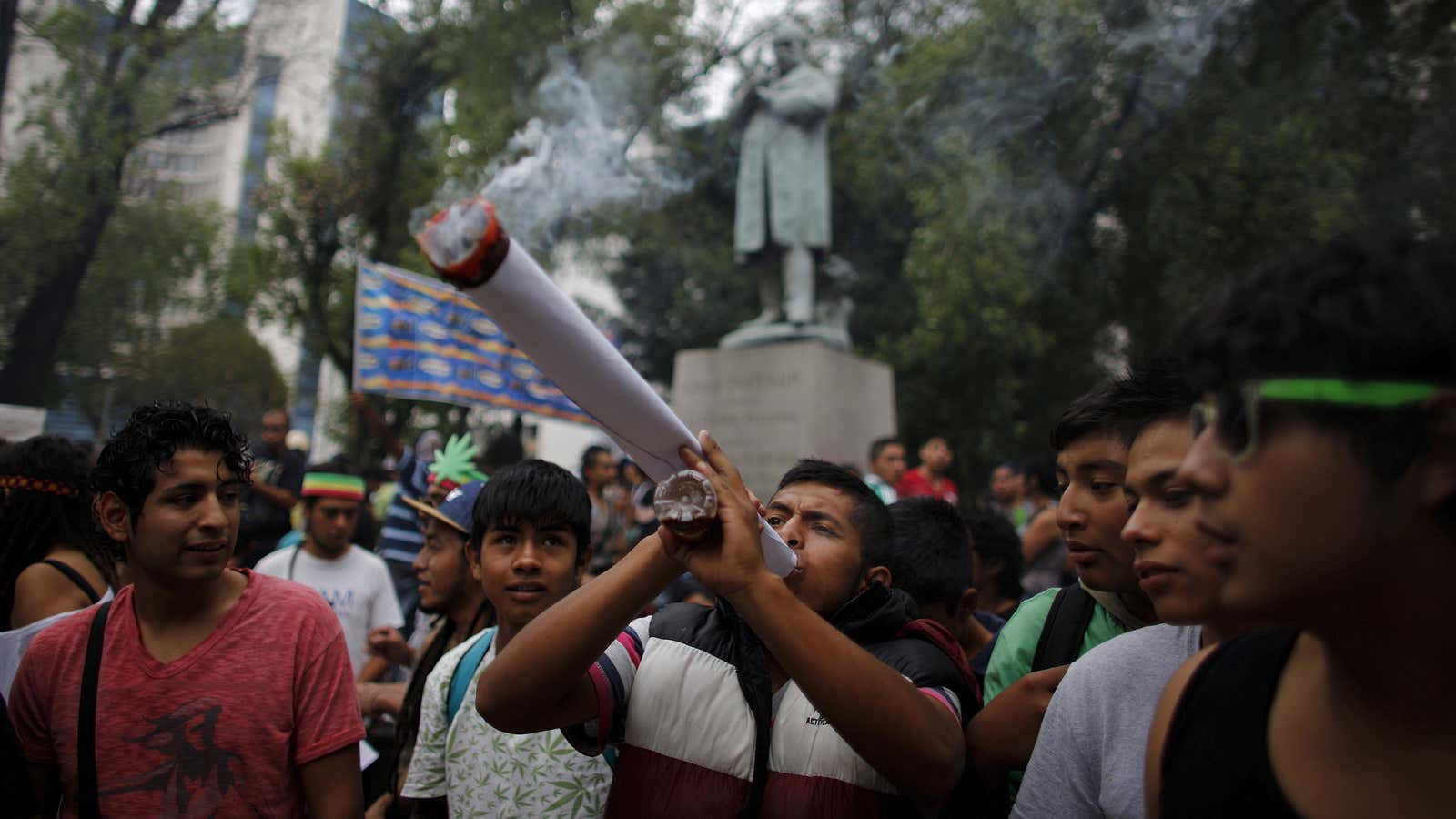Mexican lawmakers this week launched a national debate on a topic that officials around the world have been struggling to address: marijuana legalization.
Over the next three weeks, the Mexican Congress is holding a series of public hearings (link in Spanish) on whether and how to regulate marijuana. The discussions will range from nitty-gritty—how should marijuana’s potency be classified?—to broad issues such as the effects of marijuana prohibition on public safety.
If not outright legalization, the exercise is likely to result in policy changes, such as regulating medicinal pot and lifting the maximum amount of the drug that users can carry without facing jail time, Alejandro Madrazo, a professor at research university CIDE, tells Quartz. (The current limit is five grams, or less than a quarter ounce.)
The debate is taking place ahead of a special United Nations summit on drug policy, UNGASS 2016, the first of its kind in nearly two decades. The April conference was called for by the presidents of Mexico, Colombia and Guatemala, all countries battered by the drug trade. Marijuana legalization will likely be a topic of discussion, says Hannah Hetzer, Americas policy manager at the Drug Policy Alliance, a NY-based group that advocates for the decriminalization of drug use.
“It’s responsible and it’s necessary,”she tells Quartz of Mexico’s government-led pot debate. “Worldwide it is a topic that is gaining attention.”
Legalizing marijuana is hardly a revolutionary trend. The drug’s consumption has been sanctioned in places like Holland and Catalonia (pdf, page 6) for more than two decades. Uruguay and four US states, as well as the District of Colombia, have also legalized recreational marijuana.
Still, many politicians remain reluctant to confront the issue. In the US, for example, the federal government has been addressing legalization in a piecemeal fashion, and largely in response to state laws, experts say.
Mexican officials were forced into the conversation after an unprecedented Supreme Court ruling last November, which declared the recreational use of marijuana a personal freedom and the laws prohibiting it unconstitutional.
“If they didn’t respond, the country would have become schizophrenic,” says Armando Santacruz, a member of the Society for Responsible and Tolerant Personal Consumption (or SMART in Spanish,) the marijuana club that filed the case that elicited the court’s decision.
Mexico’s departments of interior and health are organizing their own public assemblies (Spanish) on pot, which started Jan. 26 in Cancun, and will be held in four other cities over the next three months. Anyone with an opinion is invited to participate.
But some say those debates are more charade than real discussion, given that President Enrique Peña Nieto, who called for them, has already said he’s not in favor of legalization. A group of influential academics and other proponents of liberalizing Mexico’s drug laws, including SMART and Madrazo, have refused to participate (Spanish,) saying in a letter to the president that they are worried the forum is an excuse to delay acting on what the Supreme Court already ruled.
